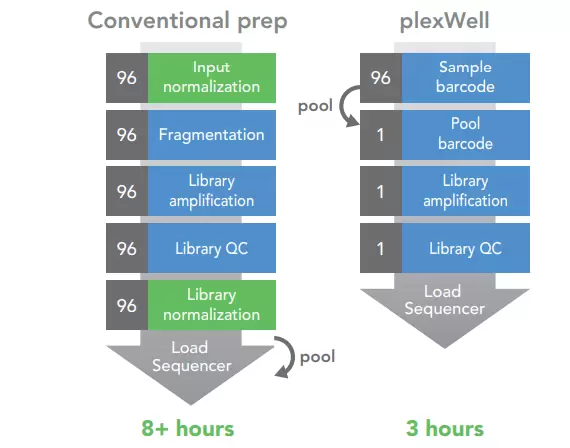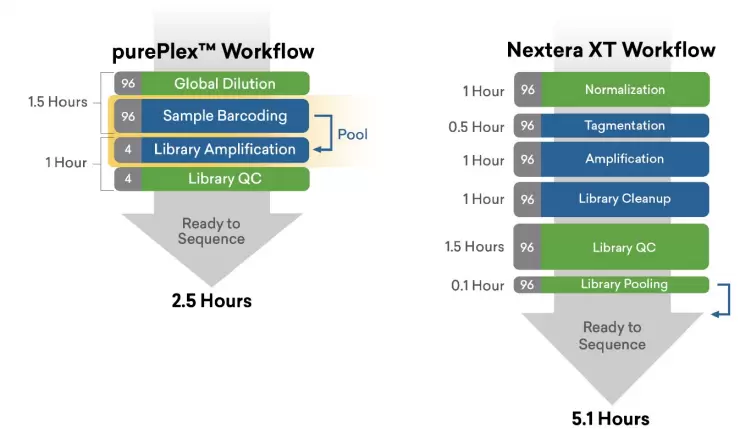
NGS DNA Library Construction Kits
Next Generation DNA Library Construction Kits
Use the power of Tagmentation in streamlined NGS DNA library preparation workflows
Our partner seqWell developed highly innovative NGS DNA Library Preparation Kits which harness the power of tagmentation. This technique of simultaneous fragmenting and tagging (ligating NGS adapter sequences) of DNA is excellently suited to replace traditional library preparation methods that use complex and lengthy protocols that can limit the reach of NGS.
plexWell
The plexWell™ system for scalable true multiplexing utilizes a transposase to selectively tag DNA samples in a unique sequential manner. Samples are sequentially tagged with Illumina P7 and P5 primers resulting in normalized libraries with unique barcode combinations. The sequential tagging process provides more control of each step versus other transposon methods and less prone to bias and input DNA variations. The plexWell workflow saves hours over conventional library preperation by eliminating the need for time-intensive DNA normalization and library quantitation.

purePlex
A streamlined workflow was developed for the purePlex™ DNA Library Preparation Kits. With seqWell's patented Tn5 transposase-based chemistry where simple molecular tagging steps add dual indexes early on in the library prep process, they enable pooling of samples prior to any bead cleanups or amplification steps. A distinct advantage of the purePlex workflow is the elimination of sample and library normalization which reduces the QC and labor cost compared to traditional UDI workflows.

ExpressPlex
The Library Preparation Kits ExpressPlex 2.0 are designed for rapid turnaround of plasmid, amplicon, or synthetic construct sequencing.They use the power of the Next Generation Transposase TnX for reduced bias and improved coverage uniformity. The TnX transposase-based workflow combines protocol simplicity with high-performance library preparation and generates sequence-ready libraries from extracted samples in less than half a day. The kits support automation and flexible reaction volumes.
Long Plex
The LongPlex™ Long Fragment Multiplexing Kit fragments genomic DNA to the range of 7-10 kb while simultaneously adding barcodes in a rapid transposase-based enzymatic method. The initial fragmentation and barcoding steps take only ~35 minutes in a plate-based workflow.